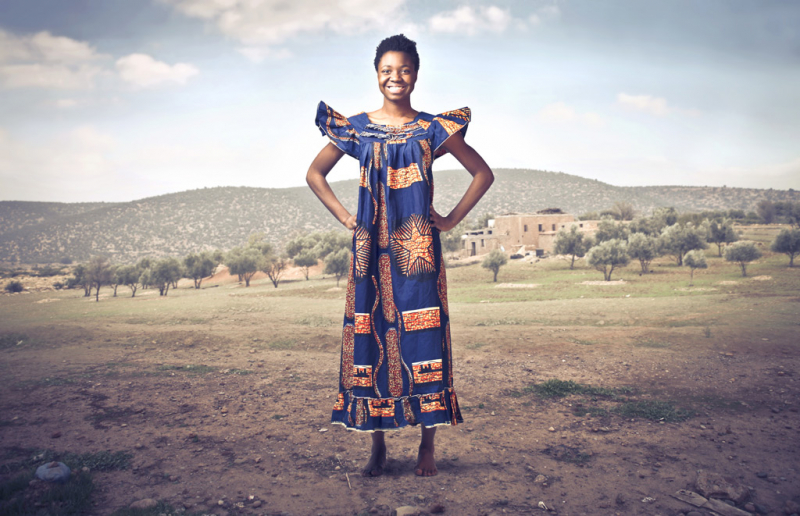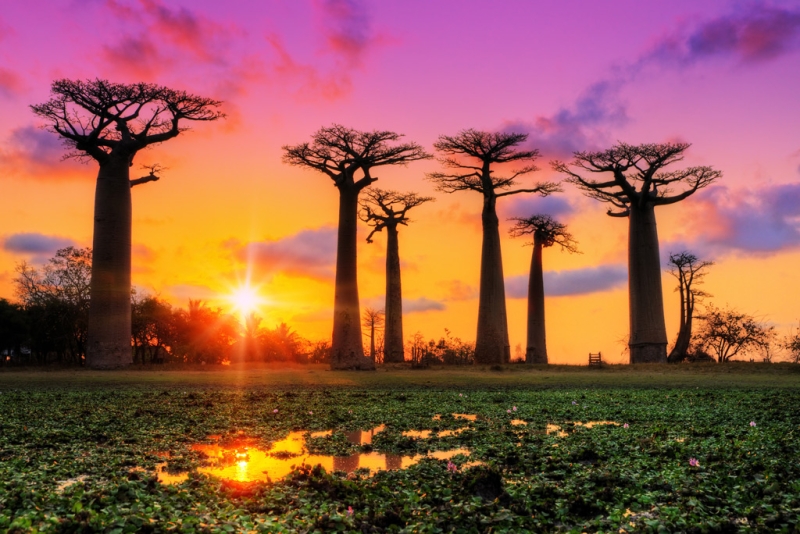
If you’re traveling along the coast of Madagascar, don’t wear red, try not to speak French, and if you’re communicating with someone local, don’t point your finger around: you might accidentally point in the direction of his ancestor’s grave , and this is considered a sign of disrespect.
Behavior in Madagascar is regulated by thousands of cultural taboos, or in the local Malagasy language, fadi. Some fadis seem strange to an inexperienced traveler, while others are quite practical (for example, not eating raw beef). Locals in Madagascar never ask themselves where fadi came from, they simply follow it habitually. Therefore, you should not ask a Madagascar why the fadi system is structured this way and not otherwise – instead of an answer, you can easily run into rudeness.

Most likely, fadi, like most superstitions and omens, grew out of purely practical considerations. For a person, fadi may seem like a burdensome set of random superstitions, and some prohibitions may even seem stupid (you can’t build verandas, you can’t pass a chicken egg from hand to hand). You can see the logic in some fadis – one ban helps preserve the environment (in Madagascar you can’t hunt many species of lemurs, and you can’t fish in certain places on the coast – exactly where rare coral reefs have been preserved),
other contributes to the education of community members.
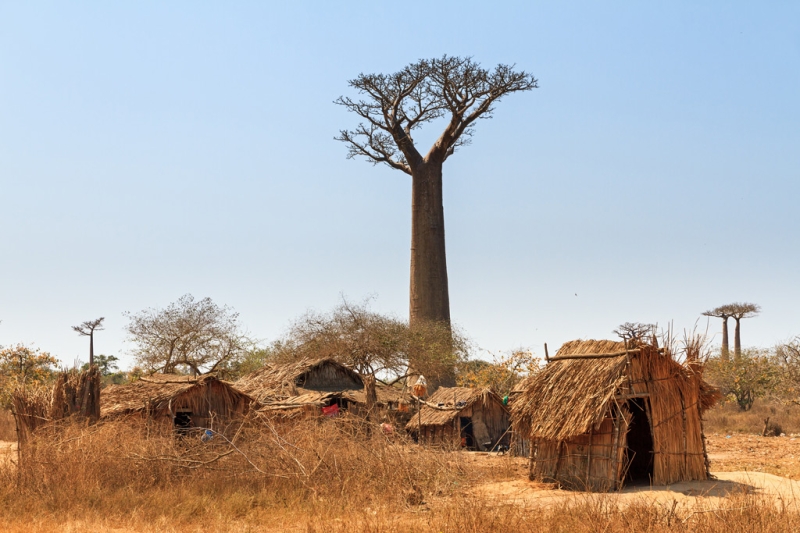
Just houses on the Alley of Baobabs
Many of Madagascar’s fadis are food-related. For example, Madagascars are not allowed to eat goats or eels. There are fadis that relate to the days of the week: on Tuesdays you cannot bury or engage in farming. Finally, there are a huge number of fadis that regulate ordinary everyday life: for example, during a funeral you cannot use a shovel with a hard handle.
Specific places on the island – for example, the graves of the ancestors of Madagascans – may also be associated with fadi: children should not play hide and seek near the cemetery. Some of these prohibitions apply only within a community or even a single family, while other fadi are observed at the regional level.
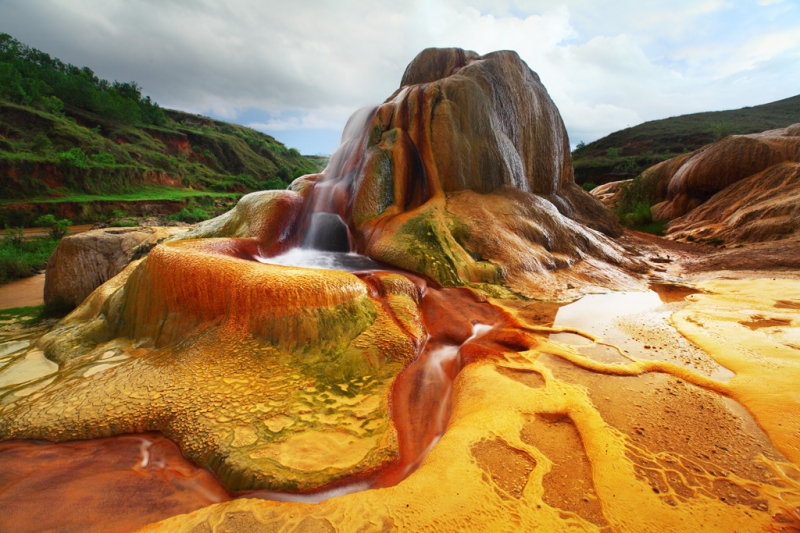
Artificial geyser near the city of Analavori
Violation of fadi entails social censure or even a curse, which is believed to be sent to the violator by the ancestors. The punishment for violating fadi can be very specific and strictly correspond to the specific prohibition. For example, a Madagascar who sings while eating will have teeth that grow large and will not fit in his mouth.

Giraffe weevil
Despite the severity of fadi, some of them can sometimes be circumvented. For example, if a prohibition interferes with a promising business opportunity, a Madagascar may conduct ritual negotiations with his ancestors and ask permission to temporarily lift the prohibition. The ancestors are getting into position (business is business in Madagascar too),
and such permission is issued.
Fadi can be canceled not only with the help of otherworldly consultation. Minor restrictions can be temporarily lifted by the village chief.
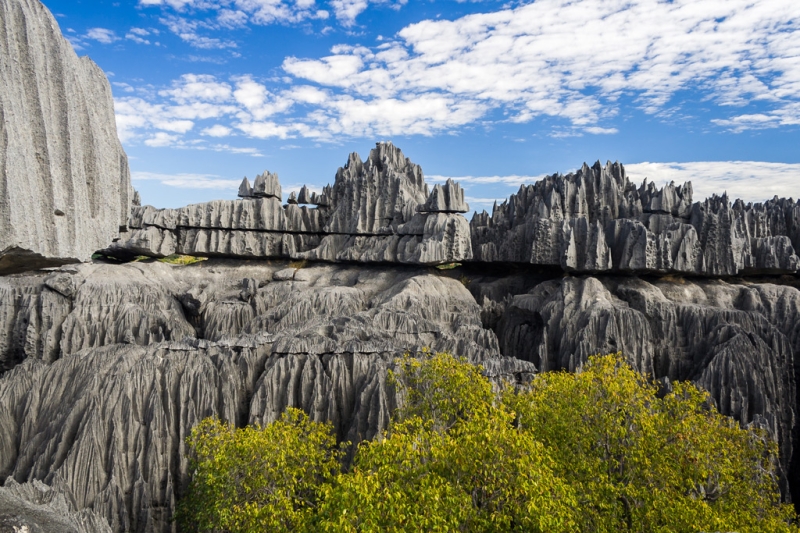
Mountains, just mountains
The zealous observance of fadi does not in the least prevent Madagascans from following the major European religions. But even if they are disciplined Christians or Muslims, they still strictly observe the fadi accepted for their community.
Foreigners who live and work in Madagascar easily get used to the presence of fadi, because it is just a matter of politeness and respect for traditions and culture. If you are going to any area of Madagascar, but do not know the local fadis, and are afraid of breaking them, ask for a list of the main prohibitions from the guide who is preparing the tour for you, or at the tourist information centers upon arrival. Even if you accidentally break some of the taboos, don’t worry. Madagascars forgive newcomers. But you shouldn’t abuse their hospitality.
With OneTwoTrip you can now feel like a wizard and make someone’s long-time dream come true by giving a gift certificate for a trip.
You can make hotel reservations on the website or through the OneTwoTrip application.
Author: Marat Abdrakhmanov
You may be interested in:
Top 8 unusual laws of the world that every traveler needs to know
6 Tourist Spots That Are in Danger of Extinction
10 safest and most beautiful countries in Africa
